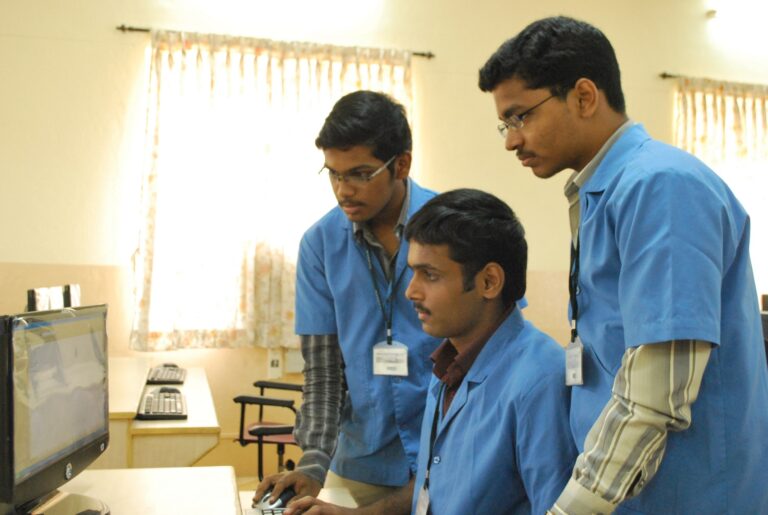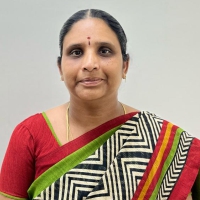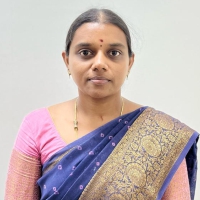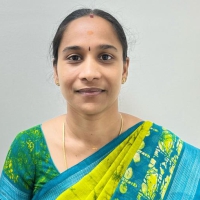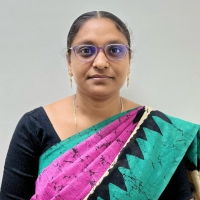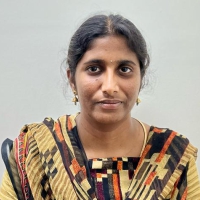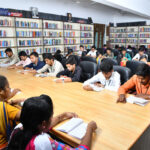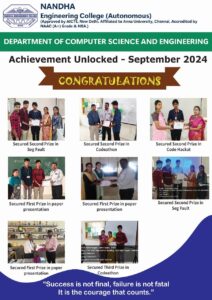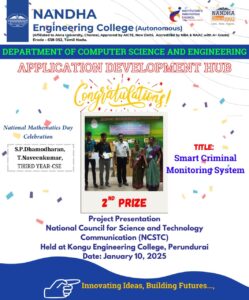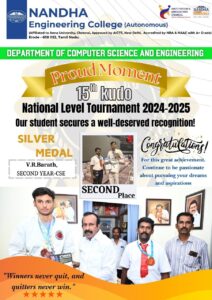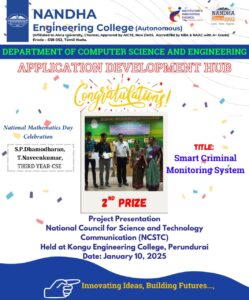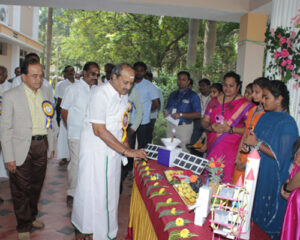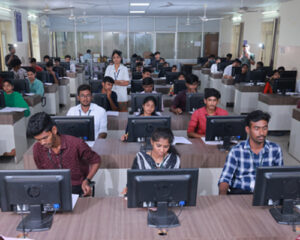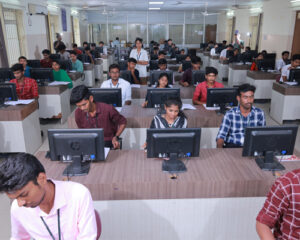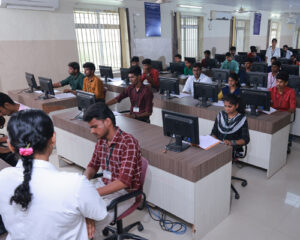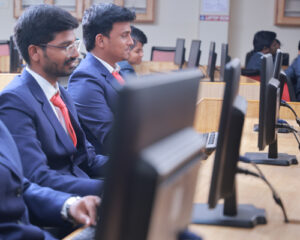
Head of the Department
Programme Offered
B.E - Electrical and Electronics Engineering
Intake - 60
About the Department
ACCREDITATION
The Electrical and Electronics Engineering Department has been Re-accreditated by National Board of Accrediation, AICTE, New Delhi.
ABOUT THE DISCIPLINE
The Department of Electrical and Electronics Engineering was started in the year 2002 and presently it offers undergraduate program in Electrical and Electronics Engineering. The Department has qualified faculty members with excellent academic records. The Department is equipped with excellent laboratory facilities since its inspection.
Electrical Engineering department has a separate department library to cater to the specific needs of the Electrical Engineering students. The computer and internet facilities are made available to the students round the clock. The department has initiated conducting National Conference, Technical Symposium, Inter/Intra department Activities, Funding agencies Sponsored Workshops and Seminars.
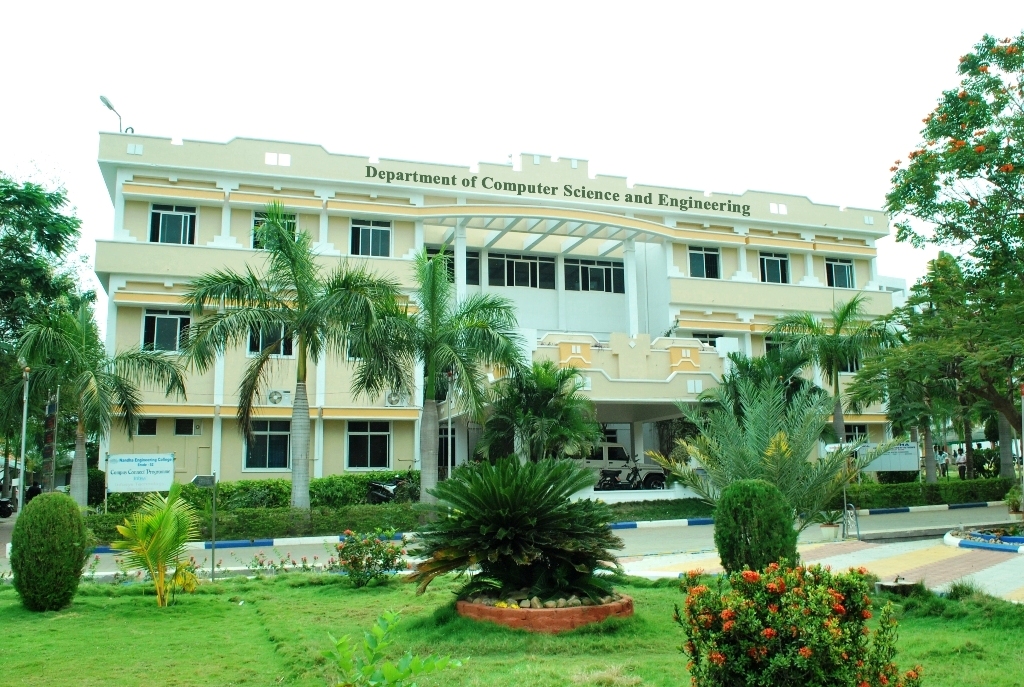
VISION
To foster academic excellence imparting knowledge in Electrical, Electronics and allied disciplines to meet the changing needs of the society.
MISSION
Department of Electrical and Electronics Engineering is committed
- To equip the students with leadership qualities for accepting the challenges in various engineering sectors.
- To excel in the thrust areas of Electrical and Electronics Engineering to solve real world problems.
- To empower the students to adapt the latest technologies by providing innovative learning environment
PROGRAM EDUCATIONAL OBJECTIVES (PEOs)
The graduates of Electrical and Electronics Engineering will be
PEO 1: Core Competency: A Successful professional with domain knowledge in Electrical and Electronics Engineering using emerging techniques.
PEO 2: Research, Innovation and Entrepreneurship: Able to demonstrate multi-disciplinary skills through innovation and research to meet the societal needs.
PEO 3: Ethics, Human values and Life-long learning: Able to demonstrate ethical practices and managerial skills through continual learning.
PROGRAM OUTCOMES (POs)
PO 1: Engineering Knowledge: Apply the knowledge of mathematics, science, engineering fundamentals, and an engineering specialization to the solution of complex engineering problems.
PO 2: Problem Analysis: Identify, formulate, review research literature, and analyze complex engineering problems reaching substantiated conclusions using first principles of mathematics, natural sciences, and engineering sciences.
PO 3: Design and Development of Solutions: Design solutions for complex engineering problems and design system components or processes that meet the specified needs with appropriate consideration for the public health and safety, and the cultural, societal, and environmental considerations.
PO 4: Investigation of Complex Problems: Use research-based knowledge and research methods including design of experiments, analysis and interpretation of data, and synthesis of the information to provide valid conclusions.
PO 5: Modern Tool Usage: Create, select, and apply appropriate techniques, resources, and modern engineering and IT tools including prediction and modeling to complex engineering activities with an understanding of the limitations.
PO 6: The Engineer and Society: Apply reasoning acquired by the contextual knowledge to assess societal, health, safety, legal and cultural issues and the consequent responsibilities relevant to the professional Engineering practice.
PO 7: Environment & Sustainability: Understand the impact of the professional engineering solutions in societal and environmental contexts, and demonstrate the Knowledge of, and need for sustainable development.
PO 8: Ethics: Apply ethical principles and commit to professional ethics and responsibilities and norms of the engineering practice.
PO 9: Individual and Teamwork: Function effectively as an individual, and as a member or leader in diverse teams, and in multidisciplinary settings.
PO 10: Communication: Communicate effectively on complex engineering activities with the engineering community and with society at large, such as, being able to comprehend and write effective reports and design documentation, make effective presentations, and give and receive clear instructions.
PO 11: Project Management and Finance: Demonstrate knowledge and understanding of the engineering and management principles and apply these to one ‘s own work, as a member and leader in a team, to manage projects and in multidisciplinary environments.
PO 12: Lifelong Learning: Recognize the need for and have the preparation and ability to engage in independent and life-long learning in the broadest context of technological change.
The students of Electrical and Electronics Engineering will be able to
PSO 1: Analyze, design and validate processes, products by applying knowledge and skills in Power system, Electrical Machines and Power Electronics.
PSO 2: Design and analyze the processes of smart grid and renewable energy systems using appropriate tools and techniques.
Faculty Members
Supporting Staff Members
Department Laboratory
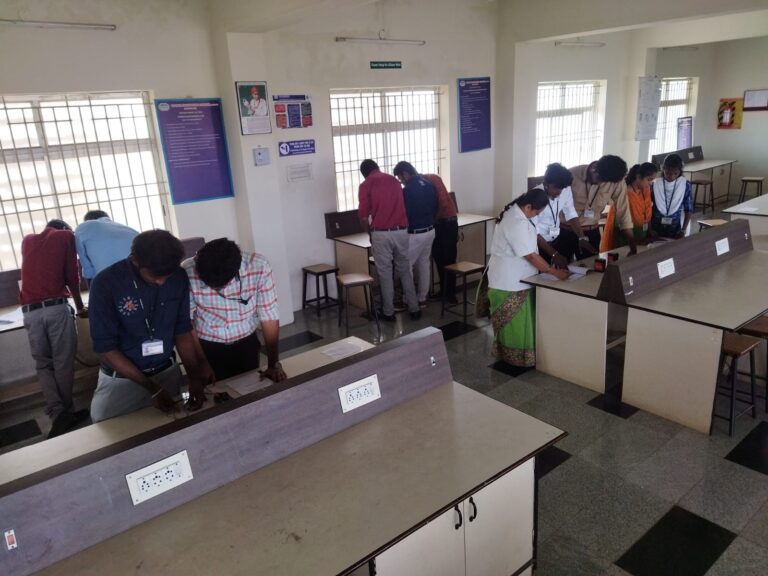
Power Electronics Laboratory
The Power Electronics Laboratory at the Department of Electrical and Electronics Engineering is dedicated to providing students with hands-on experience and in-depth knowledge in the field of power electronics. This laboratory serves as a key resource for understanding the principles and applications of power semi conductor devices and circuits used to convert, control, and manage electrical power efficiently.
Power electronics is a crucial area of electrical engineering, involving the design, control, and conversion of electrical power using semiconductor devices. In this laboratory, students explore the workings of power converters, inverters, rectifiers, and other power devices that play an essential role in renewable energy systems, electric vehicles, industrial automation, and consumer electronics.
Key Learning Areas:
- Semiconductor Devices:
Practical exposure to various semiconductor devices, such as Thyristors: SCR and TRIAC, Transistors: MOSFETs and IGBTs, which are integral to controlling and switching electrical power in power electronics applications.
- Power Conversion:
Students learn how to convert AC to DC, DC to AC, and control the flow of electrical energy through various types of power converters (AC-DC, DC-AC, DC-DC, and AC-AC).
- Design & Simulation:
Students engage in both design and simulation of power electronic circuits, analyzing the performance of different systems under various operational conditions.
- Renewable Energy Systems:
The lab supports research and experimentation related to the integration of power electronics in solar and wind energy systems, with a focus on energy efficiency and optimization.
CC-II
The laboratories are well equipped with the current technology, equipment and licensed software packages to enrich the learning experience with the support of Program specific curriculum, which is carefully designed to include the modern technological trends. Each laboratory maintains a stock register detailing the history of the equipment available. Each laboratory operates on a specific schedule which is stated by the corresponding Time Table of the specific semester / branch.
